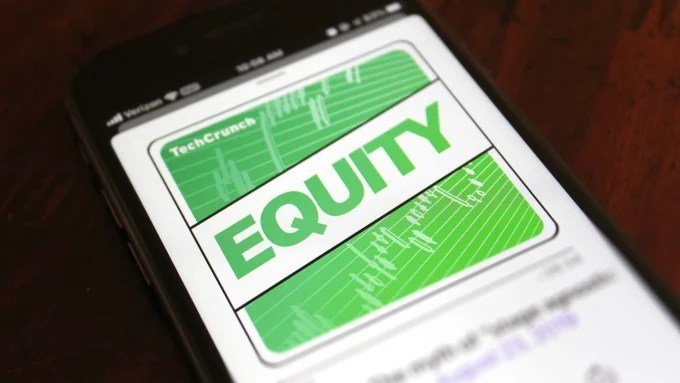
Who knew M&A would be the thing we couldn’t shut up about?
Listen here or wherever you get your podcasts.
Hello, and welcome back to Equity, the podcast about the business of startups, where we unpack the numbers and nuance behind the headlines.
This is our startup-focused, Wednesday episode, so today we’re counting down important venture rounds, and chatting our way through other startup and VC news.
Here’s what we got into:We’ll be digging into the Brex situation on Friday, so stay tuned for more about fintech soon!

Deal Dive: Tier and Dott’s merger is not a sign of what’s to come in M&A this year Consolidation can be complicatedEarlier this week, European micromobility companies Tier and Dott said they had agreed to merge.
The companies hope they can become profitable if they work together, my colleague Romain reported.
This seems like a solid outcome for the two startups, since they likely weren’t going to reach IPO scale on their own.
After all, if the companies weren’t going to survive as solo entities, it makes sense to at least try another direction.
Last year I came up with a hypothesis about M&A in 2024; I was inspired by Getir acquiring FreshDirect to fill a gap it needed to potentially reach profitability.

It’s been a rough few years for startups looking to exit, but companies, especially late-stage startups, can’t stay private forever.
When the exit market didn’t open back up in 2023, as many hoped after a very quiet 2022, investors and founders alike decided that 2024 was the year that the exit market would defrost.
The vast majority of investors responded that they think exit volume will be higher in 2024 than in 2023 and 2022, but there wasn’t consensus on what those exits would look like.
Some investors are more optimistic about M&A in 2024, while others think we will see a rebound in the IPO market.
While most respondents answered this survey before the Adobe-Figma deal dissolved, many VCs acknowledged that startups looking to pursue that route this year will have to be conscious of the current regulatory environment anyway.

Exponent Founders Capital, an early-stage venture firm founded by alumni of startups such as Plaid, Robinhood and Ramp, has closed on $75 million in capital commitments, TechCrunch is the first to report.
The firm, which is emerging from stealth today, raised $50 million for its first fund in November of 2021.
Managing Partners Charley Ma and Mahdi Raza co-founded Exponent after meeting while Ma was leading fintech growth at Plaid, and Raza was leading growth and payments at Robinhood.
Exponent, which focuses on enterprise SaaS, fintech, infrastructure and GTM (go to market) software companies, invested in about 40 startups out of its first fund.
He worked in growth and payments at Robinhood before joining Stytch to lead early growth there.

Venture capitalists and founders were already worried about exits after Visa’s $5.6 billion acquisition of Plaid in 2020 was canceled after a tough battle with regulators.
Still, Figma and Plaid are only two examples of startups being impacted by antitrust and competition regulations in recent history.
Yet, since the Adobe-Figma news broke this morning, discourse is already leaning towards how this will hurt startup liquidity; some VCs are even saying that large startup acquisitions are going to be off the table.
But if you look at the data around startup M&A, that sentiment feels more like fear mongering than an actual reflection of what the startup exit market looks like.
In fact, the vast majority of startup deals look nothing like the Figma or Plaid deals.

A couple years ago, when the pandemic was still in full swing, Raj Kapoor and Josh Felser started making some investments in climate tech startups.
Things must have gone well, because now they’re jumping in: The firm today said it has closed a $65 million inaugural fund, using it to back founders who are starting climate tech software companies.
Felser founded Spinner in 1997 (sold to AOL) and Crackle in 2004 (sold to Sony).
He also started the #Climate nonprofit in 2014 and a public-private COVID task force during the pandemic.
Those experiences, coupled with a growing concern for the state of the Earth’s climate, led the two to form Climactic.









